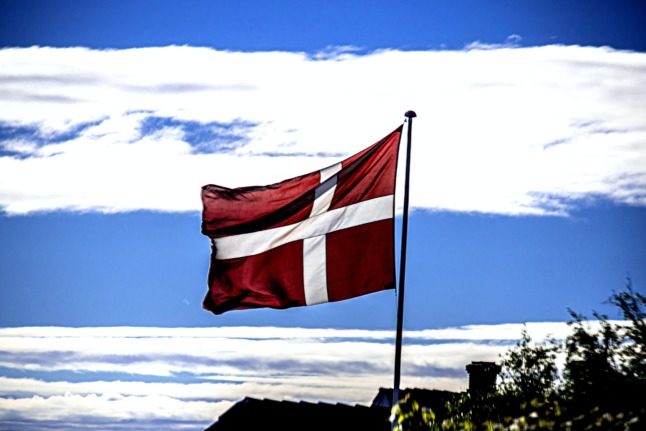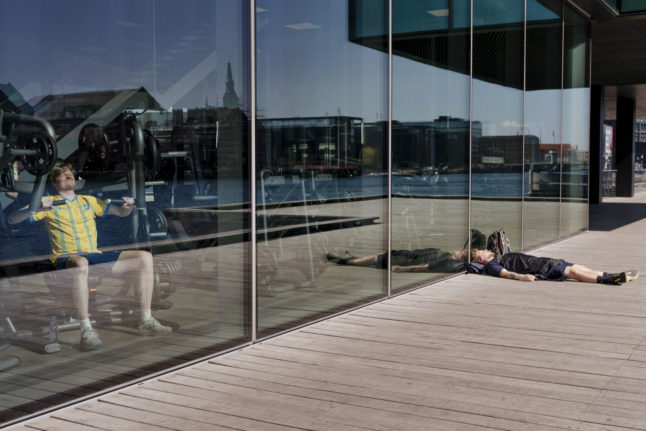January
British nationals resident in Denmark encompassed by new rules
British nationals who moved to Denmark under the pre-Brexit EU rules for free movement have applied during 2021 for continued residence status and a new residence document, which takes the form of a photo ID card. The deadline for applications is December 31st this year so if you haven’t submitted an application yet, now is the time to do it.
READ ALSO: Brexit: How UK residents of Denmark can document status for travel without new ID card
According to Danish Agency for International Recruitment and Integration (SIRI), “applications submitted after 31st December 2021 will only be processed if there is a reasonable reason why the application has been submitted after the deadline”.
People who moved to Denmark from the UK after December 31st 2020 and do not have residency rights under the EU rules formerly applicable to Britons must apply for residency status as third-country nationals, SIRI notes on its Brexit FAQs page.
Covid-19 restrictions could end or be extended
The restrictions currently in place to limit the spread of Covid-19 in Denmark, including rules requiring a test for travellers arriving in Denmark, are scheduled to expire on January 17th.
Cinemas, theatres, concert halls and museums are among attractions currently closed. A coronapas (Covid-19 health pass) is required at bars, restaurants, cafes, gyms and events of a certain size.
Face masks must be worn at stores and other businesses and cultural locations with public access as well as on public transport.
An assessment will be made by January 5th as to whether it will be necessary to keep the measures in place beyond January 17th.
Taxi drivers to face language requirement under new law
Taxi drivers will be required by law to speak Danish under an amendment to the country’s legislation passed earlier in 2021.
January 1st sees the Taxi Law (Taxiloven) changed to include a language requirement. Under new rules, documentation of Danish language skills will be required for entry onto the national taxi driver’s licensing course.
Schools return on January 5th
Schools are scheduled to return from the Christmas break on January 5th, having switched to online classes just before the end of the autumn term in response to soaring Covid-19 infection rates.
The government has said it wants to keep schools open as far as possible despite the current situation with the virus, avoiding the extensive closures that were used in earlier waves of the pandemic.
March
Preliminary tax returns published
The release of the årsopgørelse (annual tax return, calculated and displayed on the SKAT website at the beginning of March) is possibly the most important event on the Danish tax calendar.
Accessing the annual tax return is possible from March. Within a set deadline which falls at the beginning of May, taxpayers can edit their tax information, such as by changing income or tax exemption information.
Around three out of four taxpayers in Denmark get refunds after the yearly annual return although others have to pay money back to the tax authority, however.
Prior to the publication of the annual return, you can check how much tax you’ve paid or are due to pay during the course of the year and edit your income and deductions details on the preliminary version of the return, the forskudsopgørelse.
April
Potential changes to permanent residency and family reunification rules
The Ministry for Immigration and Integration last month issued a draft bill for changes to family reunification rules. The proposal is currently at the “hearing” phase, meaning it has been sent to authorities, organisations and others who can assess it and provide opinions.
Should it progress to the parliamentary stage, the bill is likely to herald a new round of curbs on permanent residency rules including family reunifications.
The Danish Agency for International Recruitment and Integration (SIRI) has noted that applications submitted after January 27th next year will be processed in accordance with the new rules, should they come into effect. That is stipulated in the text of the draft bill. The new rules would come into in effect in April, according to the draft text.
We’ll report any changes to residency and family reunification rules if they are proposed and if they are adopted.
End of tax deductions for home improvements
A tax deduction for home improvements, the “håndværkerfradrag”, will be scrapped from April 1st under the terms of next year’s budget. Other tax deductions that can be applied for home services, including cleaning and childcare, are retained.
This article outlines the change in more detail.
Deadline for businesses to repay coronavirus relief loans
Businesses have until April 1st to repay money loaned from the state during the coronavirus crisis.
Around 61,000 loans to companies paid out during the pandemic, totalling just under 22.5 billion kroner, will be due on that date, according to numbers released by the tax ministry in September.
An instalment option allows companies to place their loans with tax authorities and pay them in instalments up to April 1st, 2024.
July
Le Tour de France
Returning to its usual mid-summer slot after Covid-19 disruptions, the Tour de France gets under way in Copenhagen on July 1st, before passing through Vejle and what otherwise passes for hilly regions in Denmark. It finishes, as usual, on Paris’s Champs-Elysées on July 24th.
August
‘Earmarking’ parental leave laws take effect
Parental leave rules in Denmark are to change in 2022, bringing the country into line with EU directives.
After the EU in 2019 passed a directive which required member states to ensure a minimum of nine weeks’ “earmarked” parental leave for each parent by 2022, discussions between the government and labour market representatives resulted in an agreement over new rules, which was passed by parliament in the autumn.
The parental leave is called “earmarked” (øremærket in Danish) because the two parents cannot transfer the leave from one to another, which would allow one parent to take all or nearly all of the statutory parental leave.
We have full detail on the new rules in this article.
What else could happen in 2022?
Free dental care for young people
The 2022 budget includes a promise to “agree to prioritise core welfare, including by improving conditions for children and young people, introducing free dental care for young people aged 18-21”. Details of how free dental care will work are yet to be ironed out.
Spending on free dental care for young people will be 100 million kroner in 2022, rising incrementally each year to 410 million kroner in 2025, according to the budget.
Green taxes
Additional climate taxes in the form of a green tax reform were briefly mentioned in the budget.
Such reforms are a “key element in meeting climate goals, including with a unified CO2 emissions tax,” the budget text states.
The budget obliges the government to initiate talks on the area in early 2022, based on the first part of an expert group report.
Political changes
The anti-immigration Danish People’s Party is set to choose a new leader early in the new year. Current long-serving chairperson Kristian Thulesen Dahl said he would step down after the party was trounced in November’s local elections, paving the way for a new front figure to be selected at a party congress in January.
The party publicly courted former immigration minister Inger Støjberg, who left the Liberal party to become an independent early in 2021. But Støjberg has now been removed from parliament, which probably rules her out of contention. The current deputy leader, Morten Messerschmidt, is a frontrunner after a conviction against him in an unrelated case was quashed, though he must now go through a retrial. Martin Henriksen, a hardliner who lost his seat in the 2019 election, recently threw his hat into the ring.
The commission currently scrutinising Prime Minister Mette Frederiksen and her government for its response to the mink crisis in November 2020 – which included an illegal directive to cull fur farm mink – is expected to complete its work in the spring of 2022.
The commission’s conclusions could be highly damaging for Frederiksen, who has already faced criticism over automatically-deleted text messages related to the decision.
No elections are scheduled in 2022, but the next general election just over the horizon in 2023 could conceivably become a factor in political strategy in the coming year. Denmark’s parliament will hold a summer recess before returning for the autumn session in September as per the normal calendar. This is when the budget and other major new laws are often presented and negotiated.



 Please whitelist us to continue reading.
Please whitelist us to continue reading.
Member comments